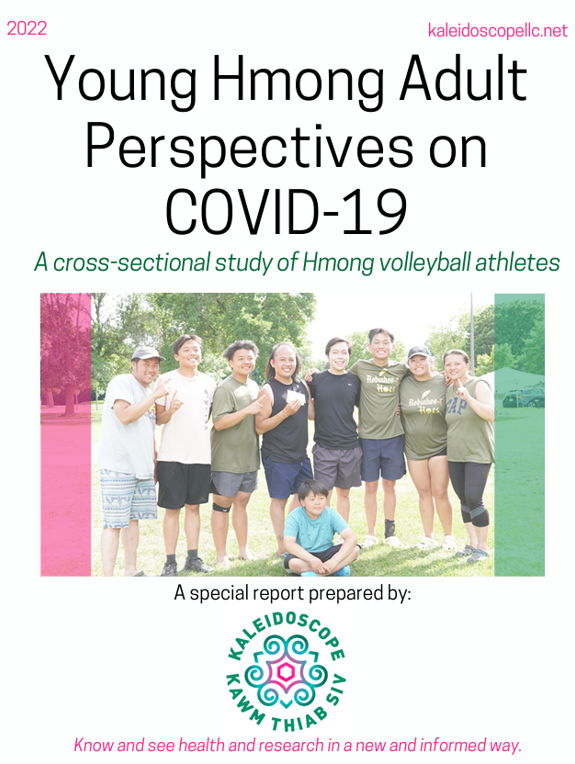Stories: COVID-19
- Stories Home
- New Model of Community Partnership
- Guidance for Hmong Funerals
- Community Outreach for Testing
- Community Testing Partnership
- LGBTQ Community Liaisons
- Tradition and Breastfeeding
- People with Disabilities
- Art and the American Indian Community
- Black Nurses Rock
- Native American Community Clinic
- COVID-19 Testing in Watonwan County
- Community Engagement and Art
- Latinx Community Liaison Team
- Nobles County Research Study
- Public Housing Vaccine Collaboration
- Phyllis Wheatly Community Center
- Community Care Clinics of Minnesota–Odam Medical
- Refugee Resettlement Agencies
- Reaching out to Greater Minnesota
- Community at the Heart of COVID-19 Response
- SEWA-AIFW (Asian Indian Family Wellness)
- Partnering with Faith Communities
- Faith Community Nurse Network
- Celebrating Ramadan Safely
- The Road to Equity
- Celebrating Pride during COVID-19
- Masking Up with the Disability Community
- Mirror Image: The value of lived experience
- Olympic Achievement
- Project Resonance
- The Power of Community Health Care Providers
- Embedding Cultural Communications
- Kick COVID
- Co-creating Messaging
- Connecting Communities through Trusted Messengers
- Partnership in Serving People with Disabilities
- Leveraging the Strength of Community
COVID-19
- COVID-19 Home
- Situation Update
- About COVID-19
- Testing
- Vaccine
- Protect Yourself & Others
- Medications
- Materials & Resources
- Stories of Community Outreach & Partnership
Related Topics
Contact Info
COVID-19 Stories
Leveraging the Strength of Community
The barrage of continually evolving information that was released during the COVID-19 pandemic constructed steep learning curves for community members, especially those whose first language was not English. Recognizing that communities vary in the way they understand and consume information, the COVID-19 Community Engagement and Diverse Media Grant Program was created to increase community understanding of and engagement around COVID-19. These grants allowed the Minnesota Department of Health (MDH) to co-create and share culturally appropriate health messages to help Minnesotans make informed decisions. This story highlights the works of one grantee, Kaleidoscope, and how they leveraged the strength of community to increase health literacy and recovery in the Hmong community.
A bilingual social enterprise
Kaleidoscope is a social enterprise that shares evidence-based research and health information in a timely and culturally sensitive way to the Hmong community. It is run by Kong Meng Vang, PharmD, and Serena Xiong, PhD, MPH. Vang shared that, "I've often seen a lot of mainstream patients who will reach out to their provider asking for specific medication or treatment, and I never really saw that coming from the Hmong population. I think a reason for that is a lack of awareness and knowledge." To address this barrier, Kaleidoscope wanted to increase health literacy in the older adult Hmong community. Doing this would help elders make their own health decisions or at least partake in conversations with their providers.
Increasing health literacy in the Hmong community
Kaleidoscope staff first focused on building trust and support by reaching out to Hmong senior centers across the Twin Cities through cold calls to the centers. Once connected, they noticed a lot of older adults still needing their third or fourth boosters. Kaleidoscope responded by requesting to host vaccination events at the senior centers. "You will never hear the community's opinion or voice until you're actually in there," says Vang.
 Vang shared the need for creativity and understanding of the community when engaging with them. For instance, Kaleidoscope held a volleyball tournament in June 2022 and during registration, volleyball teams were asked to fill out a COVID-19 survey to play. By coupling an evaluation strategy with a community sports game, it helped provide Kaleidoscope with "information about COVID-19 perceptions," Vang shared about this innovative approach. Sports are big events in the Hmong community, and Kaleidoscope saw this as an opportunity to leverage the event as a channel to initiate conversations with community members about COVID-19. Kaleidoscope published its survey results in a special report: Young Hmong Adult Perspectives on COVID-19 (PDF) in 2022.
Vang shared the need for creativity and understanding of the community when engaging with them. For instance, Kaleidoscope held a volleyball tournament in June 2022 and during registration, volleyball teams were asked to fill out a COVID-19 survey to play. By coupling an evaluation strategy with a community sports game, it helped provide Kaleidoscope with "information about COVID-19 perceptions," Vang shared about this innovative approach. Sports are big events in the Hmong community, and Kaleidoscope saw this as an opportunity to leverage the event as a channel to initiate conversations with community members about COVID-19. Kaleidoscope published its survey results in a special report: Young Hmong Adult Perspectives on COVID-19 (PDF) in 2022.
Overcoming challenges
Though they aimed to overcome any hurdles they encountered, it wasn't always easy. One predominant challenge they faced was trying to be proactive instead of retroactive. Already a vulnerable hub, senior centers faced additional transmission concerns with COVID-19 due to seniors' close quarters to each other and lack of staff resources. Noticing the lack of staff resources, Kaleidoscope expanded the number of resources available to staff – including easy-to-understand COVID-19 information. This quick thinking helped alleviate gaps as well as protect the health of center goers.
Recognizing success and moving forward
As a community connector, one great success of Kaleidoscope was its partnership in hosting vaccine clinics at the senior centers. Kaleidoscope staff were able to connect with community members and bring important COVID-19 resources to them. This helped improve accessibility and reduce knowledge gaps in a timely and culturally tailored manner. Ultimately, they were able to help support the vaccination of 218 elders. MDH awarded Kaleidoscope additional funds for COVID-19 diverse media and community engagement work this year. Kaleidoscope aims to continue its mission of promoting health through health literacy and community engagement through the strength of community.